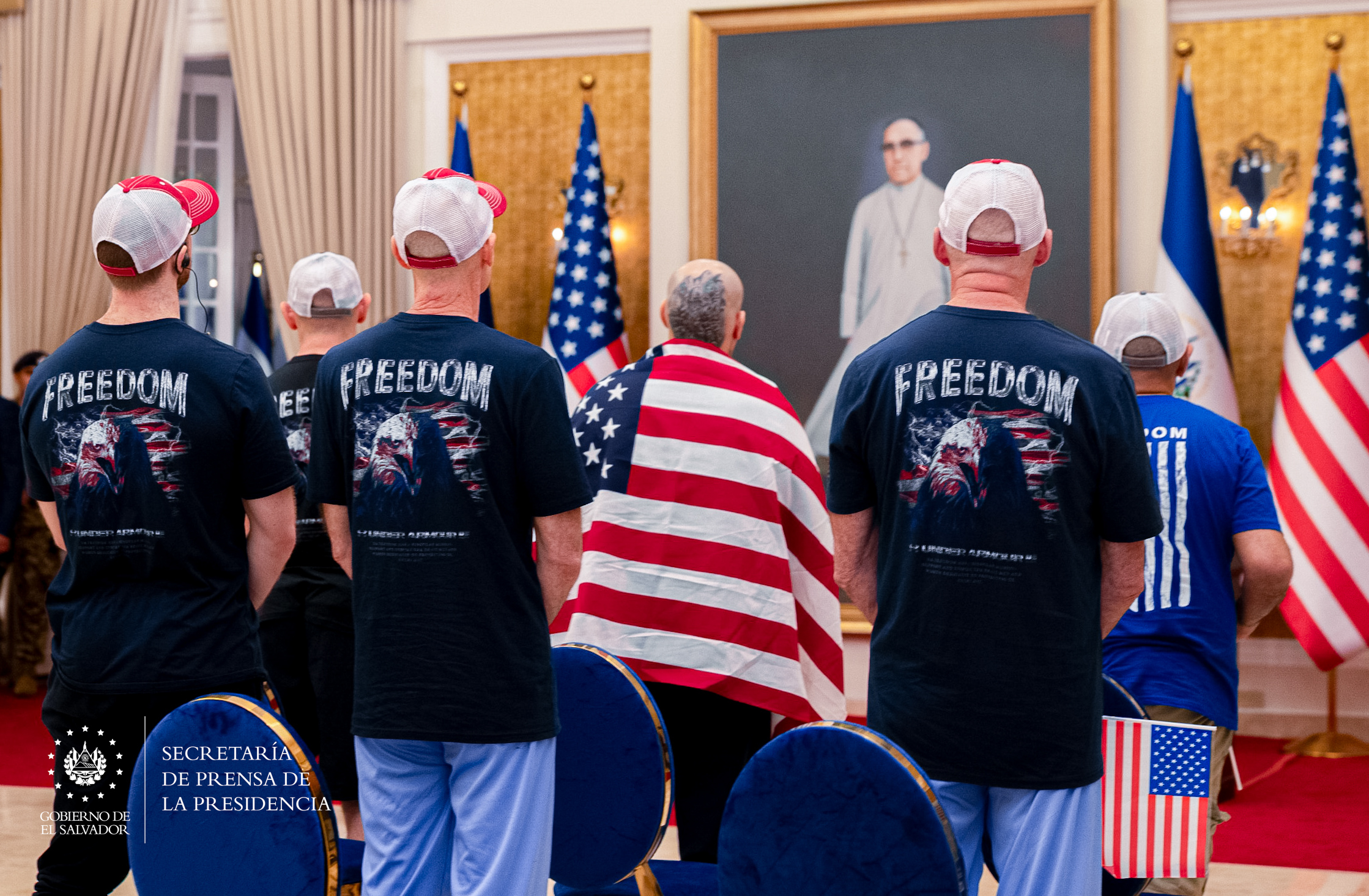“Both El Salvador and the United States bear responsibility for the victims, and each must shoulder its share of that accountability. Under no circumstances may they wash their hands of the matter and leave the victims utterly unprotected.” This is one of Cristosal’s conclusions regarding the release of 252 Venezuelans who were held at the Terrorism Confinement Center (CECOT) for three months before being repatriated on July 18.
The human rights advocacy organization stresses that the release of these individuals—many of whom had been expelled from the United States despite pending immigration and asylum proceedings—does not absolve the administrations of Donald Trump and Nayib Bukele of the abuses committed during their stay in El Salvador.
“The Salvadoran state must accept responsibility for the material control it exercised over the victims, make reparation for the harm caused, and prevent future instances of enforced disappearance in line with international standards,” Cristosal stated regarding El Salvador’s role.
At the same time, it argues that the July 18 release of the Venezuelans, in exchange for U.S. citizens and other political prisoners, amounts to a “hostage swap.” According to Cristosal, the operation “took place entirely outside the framework of international humanitarian law,” which implies that “the states involved (the United States and El Salvador) have acknowledged holding prisoners illegitimately, in defiance of international human rights norms.”
“We face two political powers brazenly dictating the fates of hundreds of lives, unbound by democratic or legal principles, wielding prisoners as bargaining chips in a political gambit,” Cristosal adds.
The freed Venezuelans, along with their families and lawyers, told LA PRENSA GRÁFICA that they intend to bring the abuses they suffered before the (Inter-American Court of Human Rights (IACHR) and the International Criminal Court (ICC).
“Tanto El Salvador como Estados Unidos son responsables sobre las víctimas”, sostiene Cristosal, tras liberación de venezolanos del CECOT
“Tanto El Salvador como los Estados Unidos son responsables sobre las víctimas, y deben asumir su responsabilidad en la dimensión que le corresponde a cada uno. En ninguna circunstancia pueden desentenderse de sus responsabilidades dejando a las víctimas en absoluta desprotección”. Esa es una de las conclusiones de Cristosal sobre la liberación de 252 venezolanos que permanecieron en el Centro de Confinamiento del Terrorismo (CECOT) por tres meses y que el 18 de julio regresaron a su país.
La organización defensora de derechos humanos sostiene que la liberación de estos ciudadanos, muchos de los cuales habían sido expulsados de Estados Unidos pese a tener procesos migratorios y de asilo pendientes, no exime a las administraciones de Donald Trump y de Nayib Bukele de las vulneraciones que se cometieron durante su estancia en El Salvador.
“El Estado salvadoreño debe asumir su responsabilidad respecto del control material que ejerció sobre las víctimas y asegurar la reparación de los daños causados, así como prevenir futuras dinámicas de desaparición forzada de acuerdo con los estándares internacionales”, expuso Cristosal sobre el papel salvadoreño.
Al mismo tiempo, sostiene que la liberación de los venezolanos, del pasado 18 de julio, a cambio de ciudadanos estadounidenses y otros presos políticos se acerca más a un “intercambio de rehenes”, mismo que según Cristosal “fue ejecutado por fuera de todo control del derecho internacional humanitario”, lo que implica que “los Estados involucrados (Estados Unidos y El Salvador) han reconocido tener prisioneros retenidos de forma ilegítima, en contra de de normas internacionales de derechos humanos”.
Estamos frente a dos poderes políticos decidiendo impunemente sobre la vida de cientos de personas sin responder a criterios democráticos o legales, utilizando prisioneros como moneda de cambio en un juego político”, añade Cristosal.
Los venezolanos liberados, junto a sus familiares y abogados, dijeron a LA PRENSA GRÁFICA que mantienen su deseo de denunciar los abusos que sufrieron ante la Corte Interamericana de Derechos Humanos (Corte IDH) y ante la Corte Penal Internacional.

